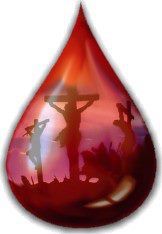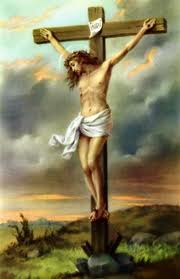 A branch can start out in the vine (Jesus) and still be cut off at a later stage due to lack of fruit
A branch can start out in the vine (Jesus) and still be cut off at a later stage due to lack of fruit
“Fruit” is often used as another term for “works” – as in showing our faith by doing good deeds towards others. We are not saved by either faith alone or works alone, but the two must go together. The following are some things we learn from John 15:
- Branches that bear at least some fruit (which is a sign of life) will be pruned, but if branches bear no fruit at all they will be removed and thrown into the fire
- The branches that were cut off were so because they did not abide by bearing fruit, and they will WITHER which shows they used to be alive and fresh.
- Jesus declared his disciples “clean” and yet they (along with all of us) were warned to not be cut off the vine due to lack of fruit.
- Being thrown in the fire is a common term for being thrown into hell, and this happens when people transgress God’s commandments and refuse to repent.
- We are fervently urged to ABIDE. We are not simply told that we absolutely WILL abide because it’s not possible to lose our salvation. It’s the other way around since we are told to stick with Jesus, or else terrible things will follow.
- There are many IF:s in the chapter. “IF a man abide not in me…”, “IF ye abide in me….”, “IF ye keep my commandments, ye shall abide in my love….” “IF ye do whatsoever I command you, you are my friends”, etc. Why all these IF:s if we are eternally secure once we are in Jesus?
- God is GLORIFIED when we bear fruit, so his desire is that we bear fruit so that he can be more glorified. That means that it’s something negative if a branch that used to be in him must be cut off due to being useless.
- Bearing fruit is a condition for being a disciple of Jesus.
- We are told to CONTINUE in his love. We are not told that it’s a certainty that we will.
- We are told that we are friends of Jesus IF we obey his commandments.
- Jesus gives us a commandment to love one another, just like Jesus has loved us. This shows us that we can heed to this commandment.
- Jesus also tells us that he has kept his Father’s commandment and therefore he abides in his love, and we are asked to do the very same (obey the commandments so that we can abide in Jesus love).
- Jesus had even ordained his disciples to bear much fruit, but this naturally doesn’t mean that they had no ability to disobey. Judas (a chosen disciple) had departed earlier, but from history we learn that the other eleven remained with Jesus and showed much good fruit throughout their lives.
- Certain people “had not had sin” if it weren’t for the fact that they rejected Jesus despite that he had come and spoken to them and shown them amazing works of God that no other man has done. Their refusal to accept Jesus made them guilty as sinners, despite that they were very religious Jews eager to obey the law of Moses.
John 15:1I am the true vine, and my Father is the husbandman.2 Every branch in me that beareth not fruit he taketh away: and every branch that beareth fruit, he purgeth it, that it may bring forth more fruit.3 Now ye are clean through the word which I have spoken unto you.4 Abide in me, and I in you. As the branch cannot bear fruit of itself, except it abide in the vine; no more can ye, except ye abide in me.5 I am the vine, ye are the branches: He that abideth in me, and I in him, the same bringeth forth much fruit: for without me ye can do nothing.6 If a man abide not in me, he is cast forth as a branch, and is withered; and men gather them, and cast them into the fire, and they are burned.7 If ye abide in me, and my words abide in you, ye shall ask what ye will, and it shall be done unto you.8 Herein is my Father glorified, that ye bear much fruit; so shall ye be my disciples.9 As the Father hath loved me, so have I loved you: continue ye in my love.10; even as I have kept my Father’s commandments, and abide in his love.11 These things have I spoken unto you, that my joy might remain in you, and that your joy might be full.12 This is my commandment, That ye love one another, as I have loved you.13 Greater love hath no man than this, that a man lay down his life for his friends.14 Ye are my friends, if ye do whatsoever I command you.15 Henceforth I call you not servants; for the servant knoweth not what his lord doeth: but I have called you friends; for all things that I have heard of my Father I have made known unto you.16 Ye have not chosen me, but I have chosen you, and ordained you, that ye should go and bring forth fruit, and that your fruit should remain: that whatsoever ye shall ask of the Father in my name, he may give it you.17 These things I command you, that ye love one another. —.22 If I had not come and spoken unto them, they had not had sin: but now they have no cloak for their sin.—24 If I had not done among them the works which none other man did, they had not had sin: but now have they both seen and hated both me and my Father.
While the above chapter shows that we can be cut off from the vine due to lack of fruit, the following chapter shows that we as branches can be cut off from the olive tree due to lack of faith (unbelief).
- The good olive tree with its roots is a picture of the Jews to whom the gospel was first provided. We are also told about another olive tree (wild by nature) which is a picture of the gentiles. Some of the branches in the good olive tree were broken off when Jews rejected Jesus as the Messiah, and the gentiles could be grafted in – provided they had faith.
- Paul tells us not to boast about our place in the olive tree, but he also says “IF you boast...” showing that we might choose to be disobedient to God against his will.
- We are told that we stand in the olive tree by FAITH, so this is a condition for salvation (both for the Jew and the gentile).
- We are told to not be high-minded , but Paul wants us to live in “fear” (in another letter he says: “work out your own salvation with fear and trembling”) since God has shown that he doesn’t necessarily spare the branches if they don’t cooperate by having faith.
- We are told to TAKE HEED, which would be a useless warning unless there were a real risk that we could lose our place in the olive tree. We are specifically told that we might not be spared due to unbelief.
- We are told to keep those who tragically fell in mind, because we too might be cut off if we don’t continue in his kindness.
- Jews (or anyone) can be grafted in AGAIN (meaning we can go from being in the tree, to not being in the tree, to being in the tree again). The condition is FAITH and that we continue to abide.
Rom. 11:16 For if the firstfruit be holy, the lump is also holy: and if the root be holy, so are the branches.17 And if some of the branches be broken off, and thou, being a wild olive tree, wert grafted in among them, and with them partakest of the root and fatness of the olive tree;18 Boast not against the branches. But if thou boast, thou bearest not the root, but the root thee.19 Thou wilt say then, The branches were broken off, that I might be grafted in.20 Well; because of unbelief they were broken off, and thou standest by faith. Be not highminded, BUT FEAR:21 For if God spared not the natural branches, TAKE HEED LEST HE ALSO SPARE NOT THEE.22 Behold therefore the goodness and severity of God: on them which fell, severity; but toward thee, goodness, IF THOU CONTINUE IN HIS GOODNESS: OTHERWISE THOU ALSO SHALT BE CUT OFF.23 And they also, IF THEY ABIDE NOT STILL IN UNBELIEF, shall be grafted in: for God is able to graft them in again.24 For if thou wert cut out of the olive tree which is wild by nature, and wert grafted contrary to nature into a good olive tree: how much more shall these, which be the natural branches, be grafted into their own olive tree?
In the below parable we can read about a vineyard who belongs to the “well-beloved”, and we are told he is the same as “The Lord of hosts”. He worked hard to produce good grapes, but contrary to his expectations WILD grapes were brought forth. What else could he have done to his vineyard apart from what he has already done? Nothing, and yet things didn’t turn out the way he wanted. The Lord of hosts then proceeded to lay his vineyard to waste.
Isaiah 5:1 Now let me sing to my Well-beloved A song of my Beloved regarding His vineyard: My Well-beloved has a vineyard On a very fruitful hill. 2 He dug it up and cleared out its stones, And planted it with the choicest vine. He built a tower in its midst, And also made a winepress in it; So He EXPECTED IT TO BRING FORTH GOOD GRAPES, BUT IT BROUGHT FORTH WILD GRAPES .3 “And now, O inhabitants of Jerusalem and men of Judah, Judge, please, between Me and My vineyard.4 What more could have been done to My vineyard That I have not done in it? WHY THEN, when I expected it to bring forth good grapes, Did it bring forth wild grapes?5 And now, please let Me tell you what I will do to My vineyard: I will take away its hedge, and it shall be burned; And break down its wall, and it shall be trampled down.6 I will lay it waste; It shall not be pruned or dug, But there shall come up briers and thorns. I will also command the clouds That they rain no rain on it.”7 For the vineyard of the Lord of hosts is the house of Israel, And the men of Judah are His pleasant plant. He looked for justice, but behold, oppression; For righteousness, but behold, a cry for help. (NKJV)
“I had planted you a noble vine, a seed of highest quality. How then have you turned before Me Into the degenerate plant of an alien vine?” (NKJV) is the question asked in Jeremiah 2:21. God planted one thing and expected a certain result (a noble vine), and yet he received a totally different result (an alien vine). Things don’t always end up as God desires, and that is due to our free will that he created us with.
Jeremiah 2:19 Thine own wickedness shall correct thee, and thy backslidings shall reprove thee: know therefore and see that it is an evil thing and bitter, that thou hast forsaken the Lord thy God, and that my fear is not in thee, saith the Lord God of hosts.20 For of old time I have broken thy yoke, and burst thy bands; and thou saidst, I will not transgress; when upon every high hill and under every green tree thou wanderest, playing the harlot.21 Yet I had planted thee a noble vine, wholly a right seed: how then art thou turned into the degenerate plant of a strange vine unto me?22 For though thou wash thee with nitre, and take thee much soap, yet thine iniquity is marked before me, saith the Lord God.
Jeremiah 8:12 Were they ashamed when they had committed abomination? nay, they were not at all ashamed, neither could they blush: therefore shall they fall among them that fall: in the time of their visitation they shall be cast down, saith the Lord.13 I will surely consume them, saith the Lord: there shall be no grapes on the vine, nor figs on the fig tree, and the leaf shall fade; and the things that I have given them shall pass away from them.
The Lord of hosts planted a tree and called it “a green olive tree, fair and of goodly fruit”. Yet, he ended up destroying it and branches were broken off. It’s a picture of God’s holy people ending up rebelling against him and provoking him to anger due to their evil deeds.
Jeremiah 11:15 What hath my beloved to do in mine house, seeing she hath wrought lewdness with many, and the holy flesh is passed from thee? when thou doest evil, then thou rejoicest.16 The Lord called thy name, A green olive tree, fair, and of goodly fruit: with the noise of a great tumult he hath kindled fire upon it, and the branches of it are broken.17 For the Lord of hosts, that planted thee, hath pronounced evil against thee, for the evil of the house of Israel and of the house of Judah, which they have done against themselves to provoke me to anger in offering incense unto Baal.
Every man is judged based on his fruit. It’s wise to win souls:
Jeremiah 17:10 I the Lord search the heart, I try the reins, even to give every man according to his ways, and according to the fruit of his doings.
Proverbs 11:30 The fruit of the righteous is a tree of life; and he that winneth souls is wise.
More from the New Testament (apart from John 15 and Romans 11 above)
We have not truly repented if we bring forth bad fruit. John the Baptist refused to baptize Jews who were still stuck in their corruption and sins. Every tree which doesn’t bring forth good fruit is cut down and thrown into the fire.
Matthew 3:8 Bring forth therefore fruits meet for repentance:9 And think not to say within yourselves, We have Abraham to our father: for I say unto you, that God is able of these stones to raise up children unto Abraham.10 And now also the axe is laid unto the root of the trees: therefore every tree which bringeth not forth good fruit is hewn down, and cast into the fire.
Even evil people can give good gifts to their children, but this doesn’t mean they are saved. It does mean that we can all do good. (Seeking God and repenting are two examples of good things that an unsaved person might choose to do.) We are told to enter the narrow gate, meaning the choice is ours. We are told to beware of false prophets, which shows that there is a risk that believers might be deceived. It also shows that people are NOT forced into being “non-elect” or “elect”, because for the non-elect a warning to beware of false prophets would fall into deaf ears, and the elect don’t even need to be warned because they can’t even lose their salvation. False prophets might be dressed in sheep’s clothing but we are still able to know them by their fruit. Are they for instance willing to be corrected by the Bible? Do they often lose their self-control and resort to name callings? Do they subtly encourage people to sin by declaring that we can safely serve two masters and still be saved? Do they show good deeds in their lives? We decide what kinds of trees we want to become, but we are also likened with branches (see above) that can be cut off.
“Not every one that saith unto me, Lord, Lord, shall enter into the kingdom of heaven; but he that DOETH the will of my Father which is in heaven.” Doing wonderful works in God’s name (prophesying, casting out demons, etc) is of course not a sin, but if you add iniquity into the picture you’re a sinner and therefore lost. Naturally everyone can get his/her soul restored by repenting! In the story below, Jesus had never known the people spoken about – probably because they had always been workers of iniquity and lawless.
“Whosoever heareth these sayings of mine, and DOETH them…” shows that not everyone is doing the will of God – but if he is doing the will of God, then that person is wise and is likened to having built his house on a rock. Notice that it’s not God who builds the house on the rock for him, but he does so himself and that is the reason he is considered to be wise – by obeying his Lord, which sadly not all choose to do.
Matthew 7:11 If ye then, being evil, know how to give good gifts unto your children, how much more shall your Father which is in heaven give good things to them that ask him?12 Therefore all things whatsoever ye would that men should do to you, do ye even so to them: for this is the law and the prophets.13 Enter ye in at the strait gate: for wide is the gate, and broad is the way, that leadeth to destruction, and many there be which go in thereat:14 Because strait is the gate, and narrow is the way, which leadeth unto life, and few there be that find it.15 Beware of false prophets, which come to you in sheep’s clothing, but inwardly they are ravening wolves.16 Ye shall know them by their fruits. Do men gather grapes of thorns, or figs of thistles?17 Even so every good tree bringeth forth good fruit; but a corrupt tree bringeth forth evil fruit.18 A good tree cannot bring forth evil fruit, neither can a corrupt tree bring forth good fruit.19 Every tree that bringeth not forth good fruit is hewn down, and cast into the fire.20 Wherefore by their fruits ye shall know them.21 Not every one that saith unto me, Lord, Lord, shall enter into the kingdom of heaven; but he that doeth the will of my Father which is in heaven.22 Many will say to me in that day, Lord, Lord, have we not prophesied in thy name? and in thy name have cast out devils? and in thy name done many wonderful works?23 And then will I profess unto them, I never knew you: depart from me, ye that work INIQUITY.24 Therefore whosoever heareth these sayings of mine, and DOETH them, I will liken him unto a wise man, which built his house upon a rock:
We certainly can’t blame God for placing evil thoughts into our hearts, because then he would be blamed for our iniquities. On judgment day we are to give account for every unnecessary word that we have said, showing that it’s our own responsibility to master our own tongues. We choose if we want to be a good person or an evil person.
Matthew 12:33 Either make the tree good, and his fruit good; or else make the tree corrupt, and his fruit corrupt: for the tree is known by his fruit.34 O generation of vipers, how can ye, being evil, speak good things? for out of the abundance of the heart the mouth speaketh.35 A good man out of the good treasure of the heart bringeth forth good things: and an evil man out of the evil treasure bringeth forth evil things.36 But I say unto you, That every idle word that men shall speak, they shall give account thereof in the day of judgment.37 For by thy words thou shalt be justified, and by thy words thou shalt be condemned.
“Why call ye me, Lord, Lord, and do not the things which I say?”Luke 6:46. Why indeed? We certainly don’t have to disobey God, but if we do it’s our own choice and nothing that we can blame on God.
Luke 6:43 For a good tree bringeth not forth corrupt fruit; neither doth a corrupt tree bring forth good fruit.44 For every tree is known by his own fruit. For of thorns men do not gather figs, nor of a bramble bush gather they grapes.45 A good man out of the good treasure of his heart bringeth forth that which is good; and an evil man out of the evil treasure of his heart bringeth forth that which is evil: for of the abundance of the heart his mouth speaketh.46 And why call ye me, Lord, Lord, and do not the things which I say?
Some people bless God with the same mouth as they curse others – for instance their brothers and sisters. James says to this brothers (indicating it also concerns believers) that it should not have to be in that way.
James 3:9 Therewith bless we God, even the Father; and therewith curse we men, which are made after the similitude of God.10 Out of the same mouth proceedeth blessing and cursing. My brethren, THESE THINGS OUGHT NOT SO TO BE.11 Doth a fountain send forth at the same place sweet water and bitter?12 Can the fig tree, my brethren, bear olive berries? either a vine, figs? so can no fountain both yield salt water and fresh.
Jesus always hopes for that we will bear fruit, and he doesn’t give up until one final day when it’s too late. Then the fig tree will finally be cut down for good:
Luke 13:6 He spake also this parable; A certain man had a fig tree planted in his vineyard; and he came and sought fruit thereon, and found none.7 Then said he unto the dresser of his vineyard, Behold, these three years I come seeking fruit on this fig tree, and find none: cut it down; why cumbereth it the ground?8 And he answering said unto him, Lord, let it alone this year also, till I shall dig about it, and dung it:9 And if it bear fruit, well: and IF NOT, then after that thou shalt cut it down.







